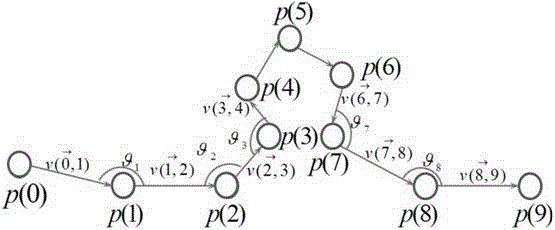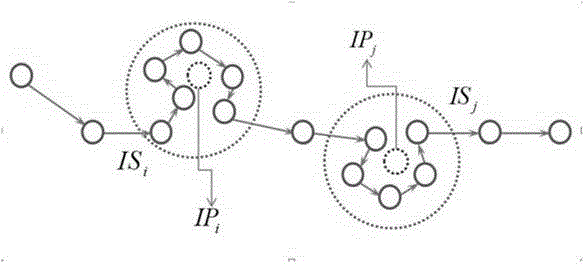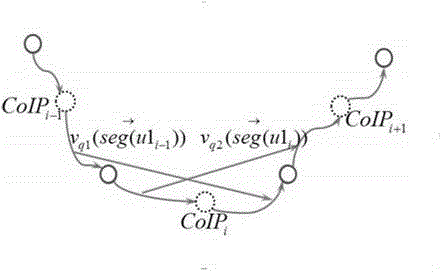Method and system for calculating space-time locus similarity
A technology of similarity calculation and space-time trajectory, applied in computing, special data processing applications, instruments, etc., can solve problems such as fine-grained and low-efficiency
- Summary
- Abstract
- Description
- Claims
- Application Information
AI Technical Summary
Problems solved by technology
Method used
Image
Examples
Embodiment Construction
[0098] Specific embodiments of the present invention are given below, and the present invention is described in detail in conjunction with the accompanying drawings.
[0099] The present invention provides a trajectory similarity calculation method based on the geometric vector method. This part provides a detailed description of the algorithm. The description process takes the similarity between two trajectories as an example. This method can be extended to calculate between multiple routes. pairwise similarity between them.
[0100] like figure 1 As shown, the present invention discloses a method for calculating the similarity of spatio-temporal trajectories, including:
[0101] Step 1, define the distance and corner rate, and describe the characteristics of the user's point of interest;
[0102] Step 2, according to the experience threshold, identify the user's point of interest; calculate its public point of interest according to the user's point of interest in the traje...
PUM
 Login to View More
Login to View More Abstract
Description
Claims
Application Information
 Login to View More
Login to View More - R&D
- Intellectual Property
- Life Sciences
- Materials
- Tech Scout
- Unparalleled Data Quality
- Higher Quality Content
- 60% Fewer Hallucinations
Browse by: Latest US Patents, China's latest patents, Technical Efficacy Thesaurus, Application Domain, Technology Topic, Popular Technical Reports.
© 2025 PatSnap. All rights reserved.Legal|Privacy policy|Modern Slavery Act Transparency Statement|Sitemap|About US| Contact US: help@patsnap.com



